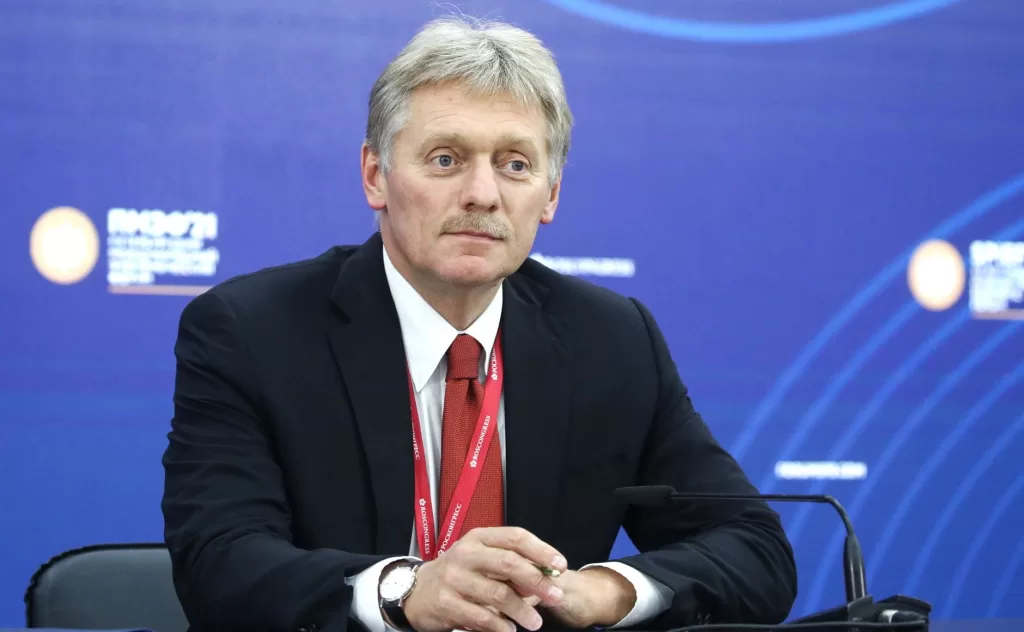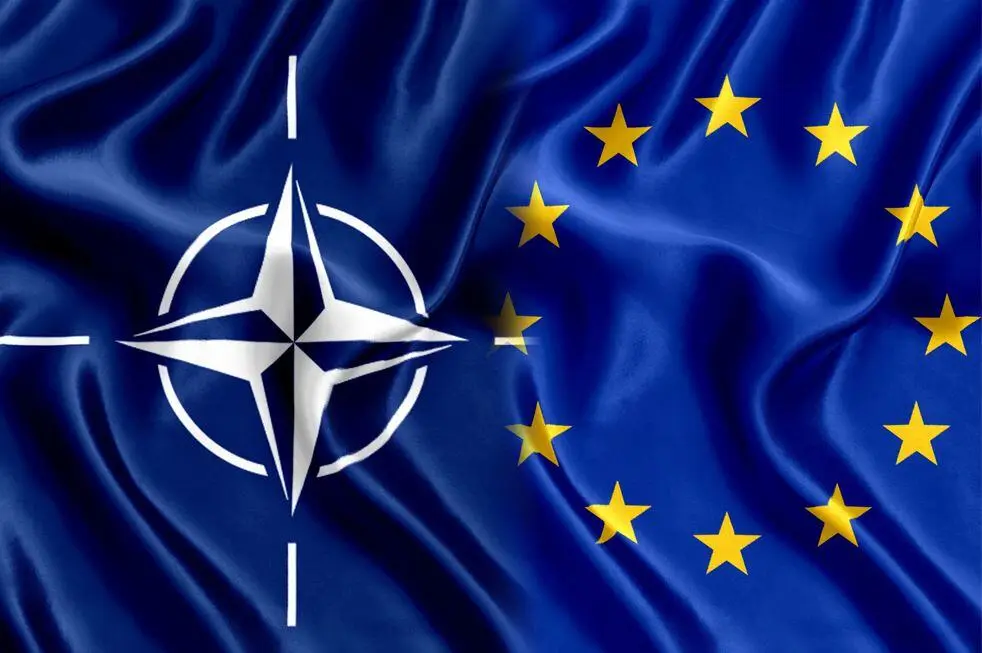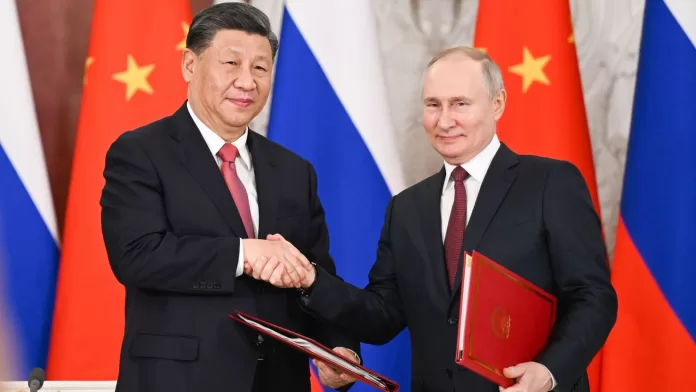Deng Xiaoping and Mikhail Gorbachev were both statesmen par-excellence and without their far-sightedness China and Russia would not have been where they are today. The least that they contributed to their evolving relationship is a new modus operandi to look beyond the immediate, and marshal a course of action that is nothing but leadership. In an audience on May 16, 1989, Deng and Gorbachev agreed “to close the past, and open the future.” These eight words, duly translated from Russian language, set the ball rolling as they decided to unlearn a new comprehension of socialism, and made it an intellect constant for slowly and gradually building a New World Order.
Thirty-five years down the line, Xi Jinping and Vladimir Putin incidentally met on May 16, 2024, to cement a New World Order that is solely of their own, and this time with a greater resolve to browbeat American meddling in the region. The Chinese and Russian presidents, respectively, were on the same page in dealing with the United States advancement towards the East, the war over Ukraine and introducing a new era of multilateralism, as they go on to buoy greater cooperation in socio-economic alliances such as BRICS, SCO and BRI. Moreover, Beijing and Moscow now have their own rules for a “no-rules based American order,” and share a common denominator of collaboration sans competition.

This ‘bromance’ is making vibes and has become a case study of leadership. It has taken the world by surprise, and the chemistry of both the presidents’ is worth a salt. The two consecutive visits of Putin to China in six months should be an eye-opener for the West, and for the developing world, as Pax-Americana is facing severe problems in Europe itself, and the inability of Washington and Brussels to look from the same prism over Ukraine is making them crumble.
President-in-waiting Donald Trump has already made public his scepticism over the future of Europe, if the latter does not dig deep into its pockets. Gone are the days when America was passionate to defend Europe till Urals, and was eager to pick up a fight with Russians. Now it is all about survival as the US is facing a tough time in the Middle East, and a jaundiced relationship with Israel has expedited its decline in terms of global leadership. This is where Xi and Putin are coming together, and with a realistic mindset that Asia is rising and the new era is all about alliances on the premise of socio-economic development, and not mere defence protocols. The success story of BRI and Russia’s nod to it has made the ultimate difference. Now more than 100 countries in five continents have a soft corner for China, and believe that the world has been taken for a ride during the Cold War.
The Czar’s contention for the last few years, especially since he walked over into Ukraine close on the heels of annexing Crimea, is that the “West is not only unbearably arrogant, it is intent on maintaining a global order that would hold China down and punish or even destroy Russia.”
In other words, as termed by Putin in an interview recently, is that it is an existential crisis, and the Kremlin will not mind making use of its nukes for a “limited warfare”! What the terminology means ‘limited’, is anybody’s guess but it assured destruction as far as former Eastern Europe and the Baltic States are concerned. In stating so, Putin has pronounced a Russian-Monroe doctrine, warning Washington to “behave or perish.”
A spokesperson for the Kremlin, Dmitry Peskov, had also made it clear that his country might use nuclear weapons if its existence is threatened. Of course, Moscow knows that nukes are best when on the shelf and not when loaded on delivering an arsenal. He not only upped the ante, but also called the bluff of the west as it believed in pushing Russia to the wall.
That is, indeed, Russia’s new National Security Doctrine. The Kremlin has, in fact, invoked the Clausewitz concept of warfare, wherein “war is a duel on an extensive scale…intended to compel the opponent to fulfill (one’s) will.” Time for US and Europe to recast their jingoism over Ukraine, as the besieged nation is rapidly losing trust in hollow promises as it stands subdued.
The complementary aspect of this strategy is that China is surprisingly in conformity with its Red neighbour.
Xi, one of the greatest crafter of foreign policy for China, as BRI remains his brainchild, and one who has fomented a ‘new deal’ for the next generation, feels edgy when he sees American jets hovering near Taiwan, and the South China Sea is militarised by proxies of White House

The zero-tolerance that Beijing exhibited over the visit of US House of Representatives’ Speaker, Nancy Pelosi, to Taiwan last year is a case in point. Similar to Russia’s sensitivity over Kiev, Beijing too has an axe to grind over Taipei, if the meddling goes undeterred.
Today, the Sino-Russian relationship depicts an emerging world order that is pluralistic, multipolar and one that will derive strength not from proxy states but a cobweb of developing nations who see their self-respect and survival in aligning with the Red flags.
This is a remarkable shift, and is more powerful than what the NATO-EU combine was for the United States in the hey-days of the Cold War.
This shift would not have been possible had China’s communist oligarchy not grown big enough to become an indispensable economic reality, and likewise, Russia contested and shunned its westernisation after the collapse of the Soviet Union. The politico-economic alignment that Moscow stitched with Central Asia and its former disintegrated states as well as deep inside Asia and Africa is a tribute to its resilience.
The huddle in May between Xi and Putin was an opportunity to recourse to their mindset. They believe that the conflict in Ukraine is bilateral, and any attempts to make it regional will be suicidal. Rather, it possesses the potential of exploding into a world war, and adversely impacting supply of energy to Europe, and at large.
Yet, they agree that the need of the hour is to diffuse the crisis and come up with a solution but only on Russian terms. This is a leeway concession from China, and hints at the change of heart in looking from the same prism of security.
As aptly stated by Putin, “…our cooperation is one of the stabilizing factors in the international arena.”
That is true because both the leaders minced no words in making it clear that there are “no-limits” to their friendship and certainly it is graduating into a counterweight to the US global influence.
It is worth mentioning that China’s 12-point policy on addressing the war in Ukraine has turned into a source of strength for Russia.
Its salient features are respecting sovereignty, overcoming strategic risks, assuring safety of nuclear power plants, and tactfully dealing with nukes, as well as courting a post-conflict scenario. This grants Russia a diplomatic license to override the show in Ukraine, and get away from it in a position of strength. Incidentally, it also provides a window of opportunity for Kiev to carve out a consensus on intricate issues, and deal with its biggest adversary just yards before the mark of annihilation. The middle ground is that Ukraine will be saved from capitulation and Moscow will feel home on coming to terms on its own.
The biggest solace, rather achievement, for Russia is that a marching NATO and European Union shall be checked on its western frontiers. China as a power-broker has a role to play, and that is what made Xi and Putin have their last laugh.




